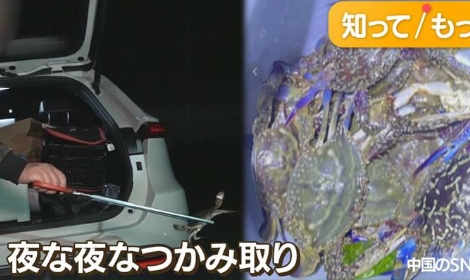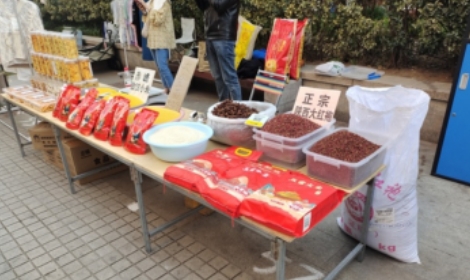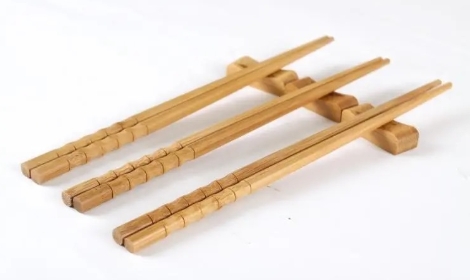中国人送礼物的艺术:最好的礼物和最差的礼物
正文翻译

Choosing and giving someone a gift can be hard. It could be a thank you gift, something for someone at their wedding, a parting present for someone on their last day at work or a birthday gift. To some of Chinese background, some gifts might be better than others.
选择并送人礼物可能很难。它可以是一份表示感谢的礼物,可以是祝贺某人结婚的礼物,可以是某人最后一天工作时的送别礼物,也可以是祝贺某人过生日的礼物。对于一些中国背景的人来说,送某些礼物可能比其他礼物更好。
Next month is my birthday. About a month ago, my Chinese-Malaysian parents asked me what I want for my birthday this year. That annoyed me – I don’t celebrate my birthday and don’t like attention. But I suppose they want to, and they know I’m a fussy person.
下个月我就要过生日了。大约在一个月前,我的华裔马来西亚父母问我今年生日想要得到什么礼物。这让我很恼火——我不喜欢庆祝我的生日,也不喜欢被关注。但我想他们是想这么做的,因为他们知道我是个挑剔的人。
There is much superstition surrounding gift giving in Chinese culture. There are gifts which some believe bring the receiver good luck, and others not as much luck.
在中国文化中,送礼有很多迷信。有些人认为某些礼物能给收礼者带来好运,而另一些则不会。
In Chinese culture, gifts that are associated with events we don’t want to happen tend to be avoided. Generally, taboo gifts in Chinese culture are tied to “touch wood” circumstances and language we’d rather distance ourselves from. For example, green hats are one such gifts: “wearing a green hat” translates to unfaithful wife. Giving shoes and umbrellas are avoided as in Mandarin they refer to breaking up of a relationship or partnership.
在中国文化中,人们往往会避免送那些与我们不想发生的事情有关的礼物。一般来说,在中国文化中,禁忌的礼物与“带来不好的结果”的环境和语言有关,我们需要避免送这些礼物。例如,绿帽子就是这样的一种礼物:“戴绿帽子”意味着“妻子不忠”。也要避免赠送鞋子和雨伞,因为在普通话中,这意味着分手或伙伴关系的结束。
When I was seven, I saw a green-coloured frog clock at a stall at the shopping centre in Malaysia and loved it. My family and I walked past this stall every Saturday, and each time I begged my parents for it, and begged even more when my eighth birthday approached. On my eighth birthday, I eagerly unwrapped my present from my parents to a…pile of Enid Blyton books. In hindsight, fair enough: “giving a clock” sounds like sòng zhōng, which translates to “funeral ritual”
七岁的时候,我在马来西亚购物中心的一个摊位上看到了一个绿色的青蛙钟,我很喜欢它。我和我的家人每个星期六都会经过这个摊位,每次我都向我的父母乞求能够得到它,当我八岁生日临近时,我更想得到它了。而在我八岁生日那天,我急切地打开父母给我的礼物,却看到一堆伊妮德.布莱顿的书。事后看来,我的父母是有道理的:因为“送钟”听起来像送终,翻译过来就是“葬礼仪式”。
For the typical Chinese person, gifts offering one positive sensory experiences are good gifts. Things that are good for the mind, body and soul make good gifts. Peaches, nuts and tea are known to have health benefits and considered prosperous presents. It’s probably why my mum comes round to cook vermicelli or claypot noodles on my birthday – not only are they healthy but they symbolise longetivity too.
对于典型的中国人来说,能带来积极感官体验的礼物才是好礼物。对身心和灵魂有益的东西都是好的礼物。众所周知,桃子、坚果和茶对健康有益,被认为是吉祥的礼物。这可能就是为什么我妈妈在我生日的时候会做细面或煲仔面——它们不仅健康,还象征着长寿。
It’s no surprise then good gifts in Chinese culture are tied with traditional customs and old-school trains of thought. Gifts that come in pairs or even sets – except in sets of 4 as the number four sounds like death in Mandarin – are popular, auspicious. Even better if the gifts are new as some Chinese reckon bad luck from the previous owner may be attached to second-hand items.
在中国文化中,好的礼物是与传统习俗和老派思想联系在一起的,这并不足为奇。成双甚至成套的礼物——除了一套四件,因为数字“4”在普通话里听起来像“死”——很受欢迎,也很吉利。如果礼物是新的就更好了,因为一些中国人认为送旧的礼物可能会给原主人带来厄运。
Practical gifts are favoured as well. Money sealed in red packets is a common gift at weddings and on birthdays. Same goes for porcelain cutlery and crockery with intricate patterns, especially the floral kind. Now that I am older, my parents present me with a red packet when my birthday comes round – and tell me to put all the money in it in the bank.
实用的礼物也很受欢迎。装在红包里的钱是在婚礼仪式和生日宴会上常见的礼物。同样的道理也适用于带有复杂图案的陶瓷餐具和陶器,尤其是带有花卉图案的。现在我长大了,我的父母在我每次过生日的时候都会给我一个红包,并告诉我把所有的钱都存在银行里。
On occasions, the more extravagant and expensive the gift, the more the gift giver might impress. But an overly lavish gift given to colleagues in China can be considered bribery, apart from letting one flaunt their wealth and giving them “face” in the world of business.
有时候,礼物越奢侈、越昂贵,送礼者给人的印象就越深刻。但在中国,给同事送过于奢侈的礼物,除了让人感到你在炫耀自己的财富、让你在商界有“面子”之外,还可能被视为贿赂。
My Chinese-Malaysian parents always taught me to use both hands to give and receive gifts; it’s a mark of respect. Some of us hesitate opening presents upon being handed them. No surprise since Asians can be reserved about expressing emotion, and traditionally in China people like to open gifts in private though this is changing.
我的华裔马来西亚父母总是教我用双手送礼物和收礼物;这是一种尊重。我们中的一些人在收到礼物时会犹豫是否立刻把它打开。这并不奇怪,因为亚洲人在表达情感方面可能会有所保留,而在中国,传统上人们喜欢在私下里打开礼物,尽管这种情况正在发生改变。
There’s more to meets the eye when one hands over a gift. As French tragedian Pierre Corneille said on giving:
当一个人送出一份礼物时,会让人看到更多的东西。正如法国悲剧作家皮埃尔.高乃依在谈论“给予“这个话题时所说:
“The manner of giving is worth more than the gift.”
“送礼的方式比礼物本身更重要。”
When we give someone a gift, we usually want them to like it or at the very least find some use for it. For the thoughtful among us, we want a gift to be meaningful and if it’s a truly meaningful gift, chances are it will be synonymous with the other person’s culture, beliefs and values. And for those of us receiving the gift, we’ll know it. On being thoughtful, author Wes Adamson said:
当我们给别人礼物时,我们通常希望他们喜欢它,或者至少找到它的一些用处。对于考虑周全的人来说,他们希望他们送的礼物是有意义的,如果这是一份真正有意义的礼物,那么它很可能与对方的文化、信仰和价值观是一致的。对于我们这些收到礼物的人来说,我们会感受到对方的用心。关于考虑周全,作家韦斯.亚当森曾说过:
“The simple gift of giving becomes an elaborate rich aftertaste of a natural blissful feeling, lingering endlessly in my lifetime.”
“简单的馈赠变成了一种自然幸福的精致回味,在我的一生中挥之不去。”
A gift is more than a material obxt. Behind each gift given is a person thinking of you, coupled with memories spent with each other. When it comes to gift giving, whether we’re giving or receiving a gift, it’s the thought that counts and that’s what we remember.
礼物不仅仅是一件实物。每一份礼物的背后都是一个人对你的思念,再加上与对方共度的回忆。说到送礼物,无论我们是送礼物的还是收礼物的,心意才是最重要的,这就是我们应该记住的。
Do you find it hard to pick a gift for someone?
你觉得给别人挑礼物很难吗?

Choosing and giving someone a gift can be hard. It could be a thank you gift, something for someone at their wedding, a parting present for someone on their last day at work or a birthday gift. To some of Chinese background, some gifts might be better than others.
选择并送人礼物可能很难。它可以是一份表示感谢的礼物,可以是祝贺某人结婚的礼物,可以是某人最后一天工作时的送别礼物,也可以是祝贺某人过生日的礼物。对于一些中国背景的人来说,送某些礼物可能比其他礼物更好。
Next month is my birthday. About a month ago, my Chinese-Malaysian parents asked me what I want for my birthday this year. That annoyed me – I don’t celebrate my birthday and don’t like attention. But I suppose they want to, and they know I’m a fussy person.
下个月我就要过生日了。大约在一个月前,我的华裔马来西亚父母问我今年生日想要得到什么礼物。这让我很恼火——我不喜欢庆祝我的生日,也不喜欢被关注。但我想他们是想这么做的,因为他们知道我是个挑剔的人。
There is much superstition surrounding gift giving in Chinese culture. There are gifts which some believe bring the receiver good luck, and others not as much luck.
在中国文化中,送礼有很多迷信。有些人认为某些礼物能给收礼者带来好运,而另一些则不会。
In Chinese culture, gifts that are associated with events we don’t want to happen tend to be avoided. Generally, taboo gifts in Chinese culture are tied to “touch wood” circumstances and language we’d rather distance ourselves from. For example, green hats are one such gifts: “wearing a green hat” translates to unfaithful wife. Giving shoes and umbrellas are avoided as in Mandarin they refer to breaking up of a relationship or partnership.
在中国文化中,人们往往会避免送那些与我们不想发生的事情有关的礼物。一般来说,在中国文化中,禁忌的礼物与“带来不好的结果”的环境和语言有关,我们需要避免送这些礼物。例如,绿帽子就是这样的一种礼物:“戴绿帽子”意味着“妻子不忠”。也要避免赠送鞋子和雨伞,因为在普通话中,这意味着分手或伙伴关系的结束。
When I was seven, I saw a green-coloured frog clock at a stall at the shopping centre in Malaysia and loved it. My family and I walked past this stall every Saturday, and each time I begged my parents for it, and begged even more when my eighth birthday approached. On my eighth birthday, I eagerly unwrapped my present from my parents to a…pile of Enid Blyton books. In hindsight, fair enough: “giving a clock” sounds like sòng zhōng, which translates to “funeral ritual”
七岁的时候,我在马来西亚购物中心的一个摊位上看到了一个绿色的青蛙钟,我很喜欢它。我和我的家人每个星期六都会经过这个摊位,每次我都向我的父母乞求能够得到它,当我八岁生日临近时,我更想得到它了。而在我八岁生日那天,我急切地打开父母给我的礼物,却看到一堆伊妮德.布莱顿的书。事后看来,我的父母是有道理的:因为“送钟”听起来像送终,翻译过来就是“葬礼仪式”。
For the typical Chinese person, gifts offering one positive sensory experiences are good gifts. Things that are good for the mind, body and soul make good gifts. Peaches, nuts and tea are known to have health benefits and considered prosperous presents. It’s probably why my mum comes round to cook vermicelli or claypot noodles on my birthday – not only are they healthy but they symbolise longetivity too.
对于典型的中国人来说,能带来积极感官体验的礼物才是好礼物。对身心和灵魂有益的东西都是好的礼物。众所周知,桃子、坚果和茶对健康有益,被认为是吉祥的礼物。这可能就是为什么我妈妈在我生日的时候会做细面或煲仔面——它们不仅健康,还象征着长寿。
It’s no surprise then good gifts in Chinese culture are tied with traditional customs and old-school trains of thought. Gifts that come in pairs or even sets – except in sets of 4 as the number four sounds like death in Mandarin – are popular, auspicious. Even better if the gifts are new as some Chinese reckon bad luck from the previous owner may be attached to second-hand items.
在中国文化中,好的礼物是与传统习俗和老派思想联系在一起的,这并不足为奇。成双甚至成套的礼物——除了一套四件,因为数字“4”在普通话里听起来像“死”——很受欢迎,也很吉利。如果礼物是新的就更好了,因为一些中国人认为送旧的礼物可能会给原主人带来厄运。
Practical gifts are favoured as well. Money sealed in red packets is a common gift at weddings and on birthdays. Same goes for porcelain cutlery and crockery with intricate patterns, especially the floral kind. Now that I am older, my parents present me with a red packet when my birthday comes round – and tell me to put all the money in it in the bank.
实用的礼物也很受欢迎。装在红包里的钱是在婚礼仪式和生日宴会上常见的礼物。同样的道理也适用于带有复杂图案的陶瓷餐具和陶器,尤其是带有花卉图案的。现在我长大了,我的父母在我每次过生日的时候都会给我一个红包,并告诉我把所有的钱都存在银行里。
On occasions, the more extravagant and expensive the gift, the more the gift giver might impress. But an overly lavish gift given to colleagues in China can be considered bribery, apart from letting one flaunt their wealth and giving them “face” in the world of business.
有时候,礼物越奢侈、越昂贵,送礼者给人的印象就越深刻。但在中国,给同事送过于奢侈的礼物,除了让人感到你在炫耀自己的财富、让你在商界有“面子”之外,还可能被视为贿赂。
My Chinese-Malaysian parents always taught me to use both hands to give and receive gifts; it’s a mark of respect. Some of us hesitate opening presents upon being handed them. No surprise since Asians can be reserved about expressing emotion, and traditionally in China people like to open gifts in private though this is changing.
我的华裔马来西亚父母总是教我用双手送礼物和收礼物;这是一种尊重。我们中的一些人在收到礼物时会犹豫是否立刻把它打开。这并不奇怪,因为亚洲人在表达情感方面可能会有所保留,而在中国,传统上人们喜欢在私下里打开礼物,尽管这种情况正在发生改变。
There’s more to meets the eye when one hands over a gift. As French tragedian Pierre Corneille said on giving:
当一个人送出一份礼物时,会让人看到更多的东西。正如法国悲剧作家皮埃尔.高乃依在谈论“给予“这个话题时所说:
“The manner of giving is worth more than the gift.”
“送礼的方式比礼物本身更重要。”
When we give someone a gift, we usually want them to like it or at the very least find some use for it. For the thoughtful among us, we want a gift to be meaningful and if it’s a truly meaningful gift, chances are it will be synonymous with the other person’s culture, beliefs and values. And for those of us receiving the gift, we’ll know it. On being thoughtful, author Wes Adamson said:
当我们给别人礼物时,我们通常希望他们喜欢它,或者至少找到它的一些用处。对于考虑周全的人来说,他们希望他们送的礼物是有意义的,如果这是一份真正有意义的礼物,那么它很可能与对方的文化、信仰和价值观是一致的。对于我们这些收到礼物的人来说,我们会感受到对方的用心。关于考虑周全,作家韦斯.亚当森曾说过:
“The simple gift of giving becomes an elaborate rich aftertaste of a natural blissful feeling, lingering endlessly in my lifetime.”
“简单的馈赠变成了一种自然幸福的精致回味,在我的一生中挥之不去。”
A gift is more than a material obxt. Behind each gift given is a person thinking of you, coupled with memories spent with each other. When it comes to gift giving, whether we’re giving or receiving a gift, it’s the thought that counts and that’s what we remember.
礼物不仅仅是一件实物。每一份礼物的背后都是一个人对你的思念,再加上与对方共度的回忆。说到送礼物,无论我们是送礼物的还是收礼物的,心意才是最重要的,这就是我们应该记住的。
Do you find it hard to pick a gift for someone?
你觉得给别人挑礼物很难吗?
评论翻译
Behind the Story
My husband used to say he didn’t like to celebrate his birthday. He liked to use the day to be thankful to his mother for giving birth to him. Is that from some kind of ancient Chinese tale encouraging filial behavior?
He stopped me from buying a clock for a gift once. I did buy a clock for my sister, though. Even though she’s not Chinese, it probably wasn’t a kind thing to do since she has trouble with punctuality. (Maybe it was a gift for myself in hopes that I wouldn’t have to wait for her so often. Ha ha.)
I can’t decide whether I like the Chinese way of opening a gift later in private or the American way of opening it right away. Opening a gift immediately, especially when there are a lot of expensive gifts, can seem materialistic. And yet, it’s also generous to share the pleasure with everyone present. Have you ever been to a baby shower? It seems the main purpose of the party is for everyone to have a chance to ooh and aah about all the darling baby clothes and bibs and blankets.
我丈夫过去常说他不喜欢庆祝他的生日。他喜欢利用这一天来感谢他的母亲生下了他。这句话是不是来自中国古代鼓励孝道的故事?他曾经阻止我买一个时钟作为礼物,但我还是给我的妹妹买了一个时钟。虽然她不是中国人,但这件礼物仍然不太合适,因为她有不守时的毛病。(也许这是给我自己的礼物,希望我不用经常等她,哈哈。)我不知道我是喜欢中国人稍后私下打开礼物的方式,还是喜欢美国人马上打开礼物的方式。马上打开礼物,尤其是当其中有很多昂贵的礼物时,会显得很物质。然而,与在场的每个人分享快乐也是很开心的事情。你参加过准妈妈派对吗?似乎聚会的主要目的是让每个人都有机会对所有可爱的婴儿衣服、围兜和毯子啧啧称叹。
Mabel Kwong
I actually haven’t heard of celebrating one’s birthday to be thankful to one’s parents. I hope your sister liked the clock you gave her and didn’t take it as an insult – after all, you are siblings. Then again, there is something called sibling rivalry…
Never been to a baby shower, and in general am not a fan of parties or get togethers with more than a few people. As you inferred, (a lot of) gifts are rooted in materialism. I often wonder: if someone throws a big party and receives a lot of gifts, what do they do with them all
其实我还没听说过在庆祝生日那天感谢父母的说法。我希望你妹妹喜欢你送她的钟,不要把它当作是一种侮辱——毕竟你们是兄弟姐妹。话又说回来,有一种东西叫做手足之争……我从来没有参加过准妈妈派对,总的来说,我不喜欢聚会,也不喜欢多人聚会。正如你所提到的,(很多)礼物是基于物质主义的。我经常在想:如果有人举办了一个盛大的聚会,收到了很多礼物,他们会怎么处理这些礼物
Behind the Story
The good thing about showers is that the recipient usually needs the gifts, i.e. clothes and diapers, etc. for a new baby. Wedding showers used to be popular back in the day when it was more common to get married at a young age and the couple was setting up a new household after having lived with their parents or in a dormitory.
Also birthday parties for kids … You ask what they do with all the gifts. I think of my seven-year-old grandson who received lots of lego sets last year and spent the next few days putting them together. Ha ha. He seems never to have too much lego.
准妈妈派对的好处是收礼者通常需要那些礼物,比如给新生儿准备的衣服和尿布等。在以前,早婚更为普遍,新婚夫妇会和父母住在一起或住在宿舍一段时间后再搬入新家,“准新娘派对”曾经很受欢迎。还有孩子们的生日派对,你问他们会怎么处理这些礼物,这让我想起了我7岁的孙子,他去年收到了很多乐高积木,然后花了几天时间把它们拼在了一起。哈哈。他似乎永远不会对乐高玩具嫌多。
Mabel Kwong
Birthday parties for kids are always fun. I think kids tend to find joy in practically every single gift they get. The thought of a gift usually is enough to get them all excited. Lego is a great gift. I love lego.
孩子们的生日派对总是会很有趣。我认为孩子们倾向于从他们得到的每一件礼物中找到快乐。一想到礼物就足以让他们兴奋不已。乐高是一个很棒的礼物,我也很喜欢乐高。
Imelda
I have some Chinese friends back home and remember that when one of them got engaged, her family gave her at least two sets of everything. The jewelry they gifted her with was lavish and had to be matching sets. I guess that counted as dowry.
I used to have difficulty picking out gifts for family, friends, and colleague. Sometimes, it was because there were too many nice things to choose from; sometimes, it was because I did not know a person well enough to guess what that person might like; and last (and perhaps the one that makes choosing most difficult), it was hard to pick out a gift for someone who has everything already. In such case, what does one give to someone with all that money can buy?
我在国内有一些中国朋友,我记得其中一个订婚时,她的家人给了她至少两套礼物。他们送给她的珠宝非常奢华,而且必须是成套的。我想那算是嫁妆吧。我曾经对为家人、朋友和同事挑选礼物感到很困难。有时是因为有太多的好东西可供选择;有时是因为我不太了解一个人,猜不出他会喜欢什么;最后(也许也是最难选择的一点),为一个已经拥有一切的人挑选礼物是很困难的。在这种情况下,我们能送给那个能用钱买到一切的人什么呢?
Mabel Kwong
I like how you break it down on choosing gifts for others. Out of the three, I agree with you that the last one is probably the most challenging when it comes to giving gifts. I suppose in those instances, giving money would be a good idea. Or perhaps you can try outright asking if there’s anything they want or take them out for a meal
我喜欢你为别人挑选礼物时的细致。在这三种情况里,我同意你的观点,最后一个可能是送礼时最具挑战性的。我想在这种情况下,给钱是个好主意。或者你可以直接问他要什么,或者和他一起出去吃饭
lolaWi
choosing the right gift for someone can be challenging. one rule for me is get the person what she or he wants rather than what i want for him/her. for some family members, i find it practical to give money so they can buy what they really want.
为别人选择合适的礼物可能会很有挑战性。我的一个原则是给对方他想要的,而不是我想要的。对于一些家庭成员,我发现可以给他们钱,这样他们就可以去买他们真正想要的东西。
Mabel Kwong
I like your rule. When it comes to gift giving, it never is about you…but for those around us. Money is always a convenient choice, and more and more people I meet days do not mind receiving money as gifts.
我喜欢你送礼物的方式。说到送礼物,这绝不是为了你自己,而是为了我们周围的人。钱总是一种方便的选择,我遇到的越来越多的人不介意收钱作为礼物。
Amy
It reminded me a Japanese family we knew. I was overwhelmed by their traditional etiquette. I guess each country has its own. China is such a big country, each region probably has its own etiquette, I am guessing.
这让我想起了我认识的一个日本家庭。我被他们的传统礼仪所折服了。我想每个国家都有自己的礼仪。中国是一个大国,我猜中国的每个地区可能都有自己的礼仪。
Mabel Kwong
In many Asian countries, it is customary to bring a small gift when visiting someone’s house, or when catching up with someone you took the trouble to come see you (from afar). The Japanese family you know sound very hospitable
在许多亚洲国家,当你去别人的家里做客时,或者当你不辞辛苦(从远处)来看你的朋友时,通常会带一个小礼物。你认识的日本家庭听起来很好客
lisa thomson
Hi Mabel, awesome post! It’s interesting to hear your culture’s superstitions surrounding gift giving. Some of us Canadians also don’t like used items for the same reason. I don’t have a problem with thrift shopping and vintage clothing. As for gift giving, whether I find it hard to find something depends on the person i’m buying for. Some people you can find just the right thing at the time you’re not even looking Other people you can search forever and still doubt you’ve picked the right thing. It says a lot about our relationship with that person, perhaps?
嗨,梅布尔,很棒的帖子!听到你们文化中关于送礼物的迷信很有趣。出于同样的原因,我们加拿大人也不喜欢旧的礼物,但我对收到从旧货市场里买的礼物和复古服装没有意见。至于送礼,我是否会觉得很难挑选礼物取决于我要送的人。有些人你可以在不经意间就找到适合送给他的礼物,而有些人你即便找了一辈子,但仍然怀疑你是否选对了送他的礼物。也许这说明了我们和那个人的关系?
Mabel Kwong
Thanks, Lisa. Like you, I don’t have a problem thrift shopping for myself. But when it comes to buying gifts for someone else, probably not.
I think you are right. I think when we have a good and meaningful emotional (and physical) relationship with someone, we just know what to get them
谢谢你,丽莎。和你一样,我也不介意收到旧的礼物。但在给别人买礼物时,可能就不会了。我认为你是对的。当我们与某人建立了良好而有意义的情感(和身体)关系时,我们就知道该送他们什么了
Leya
Interesting as usual, Mabel. My daughter’s best friend is from Taiwan, so I knew something of this before, but you have given me many more thoughts…I always try to think of the one who is getting the gift. That this person will like the present and understand my thinking with it. That I want it to be the right thing…I remember when I was a child, I sometimes bought things for my mother and grandmother that I myself would have liked to get…but mostly I made things to give away. Still, today, I think those presents are the most precious ones for me…the ones that are hand made, made with love and effort, taking time from the person who made it.
In Sweden we do not have anything in gifts connected to “good or bad things might happen”. The only thing I can think of is that old people avoid giving white flowers, because that is connected to funerals.
和往常一样有趣的文章,梅布尔。我女儿最好的朋友来自台湾地区,所以我之前知道一些关于这方面的知识,但是你的文章带给了我更多的想法……我总是试着为收到礼物的人着想,希望这个人会喜欢这个礼物,并理解我的想法。我记得当我还是个孩子的时候,我有时会给我妈妈和祖母买一些我自己也想要的东西,但大多数时候我会亲手做一些东西并送给别人。直到今天,我仍然认为那些用爱和努力亲手花时间制作的礼物对我来说是最珍贵的。在瑞典,我们没有任何与“可能发生的好事或坏事”有关的礼物。我唯一能想到的是,避免送老人们白色的花,因为那与葬礼有关。
Mabel Kwong
You are very well traveled and acquainted yourself with quite a few cultures. Such a good thing. “this person will like the present and understand my thinking with it” This is the way I think when I give someone a gift.
你知识渊博,熟悉不少文化。这是件好事。“希望这个人会喜欢这份礼物,并理解我的想法。”这也是我送给别人礼物时的想法。
My husband used to say he didn’t like to celebrate his birthday. He liked to use the day to be thankful to his mother for giving birth to him. Is that from some kind of ancient Chinese tale encouraging filial behavior?
He stopped me from buying a clock for a gift once. I did buy a clock for my sister, though. Even though she’s not Chinese, it probably wasn’t a kind thing to do since she has trouble with punctuality. (Maybe it was a gift for myself in hopes that I wouldn’t have to wait for her so often. Ha ha.)
I can’t decide whether I like the Chinese way of opening a gift later in private or the American way of opening it right away. Opening a gift immediately, especially when there are a lot of expensive gifts, can seem materialistic. And yet, it’s also generous to share the pleasure with everyone present. Have you ever been to a baby shower? It seems the main purpose of the party is for everyone to have a chance to ooh and aah about all the darling baby clothes and bibs and blankets.
我丈夫过去常说他不喜欢庆祝他的生日。他喜欢利用这一天来感谢他的母亲生下了他。这句话是不是来自中国古代鼓励孝道的故事?他曾经阻止我买一个时钟作为礼物,但我还是给我的妹妹买了一个时钟。虽然她不是中国人,但这件礼物仍然不太合适,因为她有不守时的毛病。(也许这是给我自己的礼物,希望我不用经常等她,哈哈。)我不知道我是喜欢中国人稍后私下打开礼物的方式,还是喜欢美国人马上打开礼物的方式。马上打开礼物,尤其是当其中有很多昂贵的礼物时,会显得很物质。然而,与在场的每个人分享快乐也是很开心的事情。你参加过准妈妈派对吗?似乎聚会的主要目的是让每个人都有机会对所有可爱的婴儿衣服、围兜和毯子啧啧称叹。
Mabel Kwong
I actually haven’t heard of celebrating one’s birthday to be thankful to one’s parents. I hope your sister liked the clock you gave her and didn’t take it as an insult – after all, you are siblings. Then again, there is something called sibling rivalry…
Never been to a baby shower, and in general am not a fan of parties or get togethers with more than a few people. As you inferred, (a lot of) gifts are rooted in materialism. I often wonder: if someone throws a big party and receives a lot of gifts, what do they do with them all
其实我还没听说过在庆祝生日那天感谢父母的说法。我希望你妹妹喜欢你送她的钟,不要把它当作是一种侮辱——毕竟你们是兄弟姐妹。话又说回来,有一种东西叫做手足之争……我从来没有参加过准妈妈派对,总的来说,我不喜欢聚会,也不喜欢多人聚会。正如你所提到的,(很多)礼物是基于物质主义的。我经常在想:如果有人举办了一个盛大的聚会,收到了很多礼物,他们会怎么处理这些礼物
Behind the Story
The good thing about showers is that the recipient usually needs the gifts, i.e. clothes and diapers, etc. for a new baby. Wedding showers used to be popular back in the day when it was more common to get married at a young age and the couple was setting up a new household after having lived with their parents or in a dormitory.
Also birthday parties for kids … You ask what they do with all the gifts. I think of my seven-year-old grandson who received lots of lego sets last year and spent the next few days putting them together. Ha ha. He seems never to have too much lego.
准妈妈派对的好处是收礼者通常需要那些礼物,比如给新生儿准备的衣服和尿布等。在以前,早婚更为普遍,新婚夫妇会和父母住在一起或住在宿舍一段时间后再搬入新家,“准新娘派对”曾经很受欢迎。还有孩子们的生日派对,你问他们会怎么处理这些礼物,这让我想起了我7岁的孙子,他去年收到了很多乐高积木,然后花了几天时间把它们拼在了一起。哈哈。他似乎永远不会对乐高玩具嫌多。
Mabel Kwong
Birthday parties for kids are always fun. I think kids tend to find joy in practically every single gift they get. The thought of a gift usually is enough to get them all excited. Lego is a great gift. I love lego.
孩子们的生日派对总是会很有趣。我认为孩子们倾向于从他们得到的每一件礼物中找到快乐。一想到礼物就足以让他们兴奋不已。乐高是一个很棒的礼物,我也很喜欢乐高。
Imelda
I have some Chinese friends back home and remember that when one of them got engaged, her family gave her at least two sets of everything. The jewelry they gifted her with was lavish and had to be matching sets. I guess that counted as dowry.
I used to have difficulty picking out gifts for family, friends, and colleague. Sometimes, it was because there were too many nice things to choose from; sometimes, it was because I did not know a person well enough to guess what that person might like; and last (and perhaps the one that makes choosing most difficult), it was hard to pick out a gift for someone who has everything already. In such case, what does one give to someone with all that money can buy?
我在国内有一些中国朋友,我记得其中一个订婚时,她的家人给了她至少两套礼物。他们送给她的珠宝非常奢华,而且必须是成套的。我想那算是嫁妆吧。我曾经对为家人、朋友和同事挑选礼物感到很困难。有时是因为有太多的好东西可供选择;有时是因为我不太了解一个人,猜不出他会喜欢什么;最后(也许也是最难选择的一点),为一个已经拥有一切的人挑选礼物是很困难的。在这种情况下,我们能送给那个能用钱买到一切的人什么呢?
Mabel Kwong
I like how you break it down on choosing gifts for others. Out of the three, I agree with you that the last one is probably the most challenging when it comes to giving gifts. I suppose in those instances, giving money would be a good idea. Or perhaps you can try outright asking if there’s anything they want or take them out for a meal
我喜欢你为别人挑选礼物时的细致。在这三种情况里,我同意你的观点,最后一个可能是送礼时最具挑战性的。我想在这种情况下,给钱是个好主意。或者你可以直接问他要什么,或者和他一起出去吃饭
lolaWi
choosing the right gift for someone can be challenging. one rule for me is get the person what she or he wants rather than what i want for him/her. for some family members, i find it practical to give money so they can buy what they really want.
为别人选择合适的礼物可能会很有挑战性。我的一个原则是给对方他想要的,而不是我想要的。对于一些家庭成员,我发现可以给他们钱,这样他们就可以去买他们真正想要的东西。
Mabel Kwong
I like your rule. When it comes to gift giving, it never is about you…but for those around us. Money is always a convenient choice, and more and more people I meet days do not mind receiving money as gifts.
我喜欢你送礼物的方式。说到送礼物,这绝不是为了你自己,而是为了我们周围的人。钱总是一种方便的选择,我遇到的越来越多的人不介意收钱作为礼物。
Amy
It reminded me a Japanese family we knew. I was overwhelmed by their traditional etiquette. I guess each country has its own. China is such a big country, each region probably has its own etiquette, I am guessing.
这让我想起了我认识的一个日本家庭。我被他们的传统礼仪所折服了。我想每个国家都有自己的礼仪。中国是一个大国,我猜中国的每个地区可能都有自己的礼仪。
Mabel Kwong
In many Asian countries, it is customary to bring a small gift when visiting someone’s house, or when catching up with someone you took the trouble to come see you (from afar). The Japanese family you know sound very hospitable
在许多亚洲国家,当你去别人的家里做客时,或者当你不辞辛苦(从远处)来看你的朋友时,通常会带一个小礼物。你认识的日本家庭听起来很好客
lisa thomson
Hi Mabel, awesome post! It’s interesting to hear your culture’s superstitions surrounding gift giving. Some of us Canadians also don’t like used items for the same reason. I don’t have a problem with thrift shopping and vintage clothing. As for gift giving, whether I find it hard to find something depends on the person i’m buying for. Some people you can find just the right thing at the time you’re not even looking Other people you can search forever and still doubt you’ve picked the right thing. It says a lot about our relationship with that person, perhaps?
嗨,梅布尔,很棒的帖子!听到你们文化中关于送礼物的迷信很有趣。出于同样的原因,我们加拿大人也不喜欢旧的礼物,但我对收到从旧货市场里买的礼物和复古服装没有意见。至于送礼,我是否会觉得很难挑选礼物取决于我要送的人。有些人你可以在不经意间就找到适合送给他的礼物,而有些人你即便找了一辈子,但仍然怀疑你是否选对了送他的礼物。也许这说明了我们和那个人的关系?
Mabel Kwong
Thanks, Lisa. Like you, I don’t have a problem thrift shopping for myself. But when it comes to buying gifts for someone else, probably not.
I think you are right. I think when we have a good and meaningful emotional (and physical) relationship with someone, we just know what to get them
谢谢你,丽莎。和你一样,我也不介意收到旧的礼物。但在给别人买礼物时,可能就不会了。我认为你是对的。当我们与某人建立了良好而有意义的情感(和身体)关系时,我们就知道该送他们什么了
Leya
Interesting as usual, Mabel. My daughter’s best friend is from Taiwan, so I knew something of this before, but you have given me many more thoughts…I always try to think of the one who is getting the gift. That this person will like the present and understand my thinking with it. That I want it to be the right thing…I remember when I was a child, I sometimes bought things for my mother and grandmother that I myself would have liked to get…but mostly I made things to give away. Still, today, I think those presents are the most precious ones for me…the ones that are hand made, made with love and effort, taking time from the person who made it.
In Sweden we do not have anything in gifts connected to “good or bad things might happen”. The only thing I can think of is that old people avoid giving white flowers, because that is connected to funerals.
和往常一样有趣的文章,梅布尔。我女儿最好的朋友来自台湾地区,所以我之前知道一些关于这方面的知识,但是你的文章带给了我更多的想法……我总是试着为收到礼物的人着想,希望这个人会喜欢这个礼物,并理解我的想法。我记得当我还是个孩子的时候,我有时会给我妈妈和祖母买一些我自己也想要的东西,但大多数时候我会亲手做一些东西并送给别人。直到今天,我仍然认为那些用爱和努力亲手花时间制作的礼物对我来说是最珍贵的。在瑞典,我们没有任何与“可能发生的好事或坏事”有关的礼物。我唯一能想到的是,避免送老人们白色的花,因为那与葬礼有关。
Mabel Kwong
You are very well traveled and acquainted yourself with quite a few cultures. Such a good thing. “this person will like the present and understand my thinking with it” This is the way I think when I give someone a gift.
你知识渊博,熟悉不少文化。这是件好事。“希望这个人会喜欢这份礼物,并理解我的想法。”这也是我送给别人礼物时的想法。










